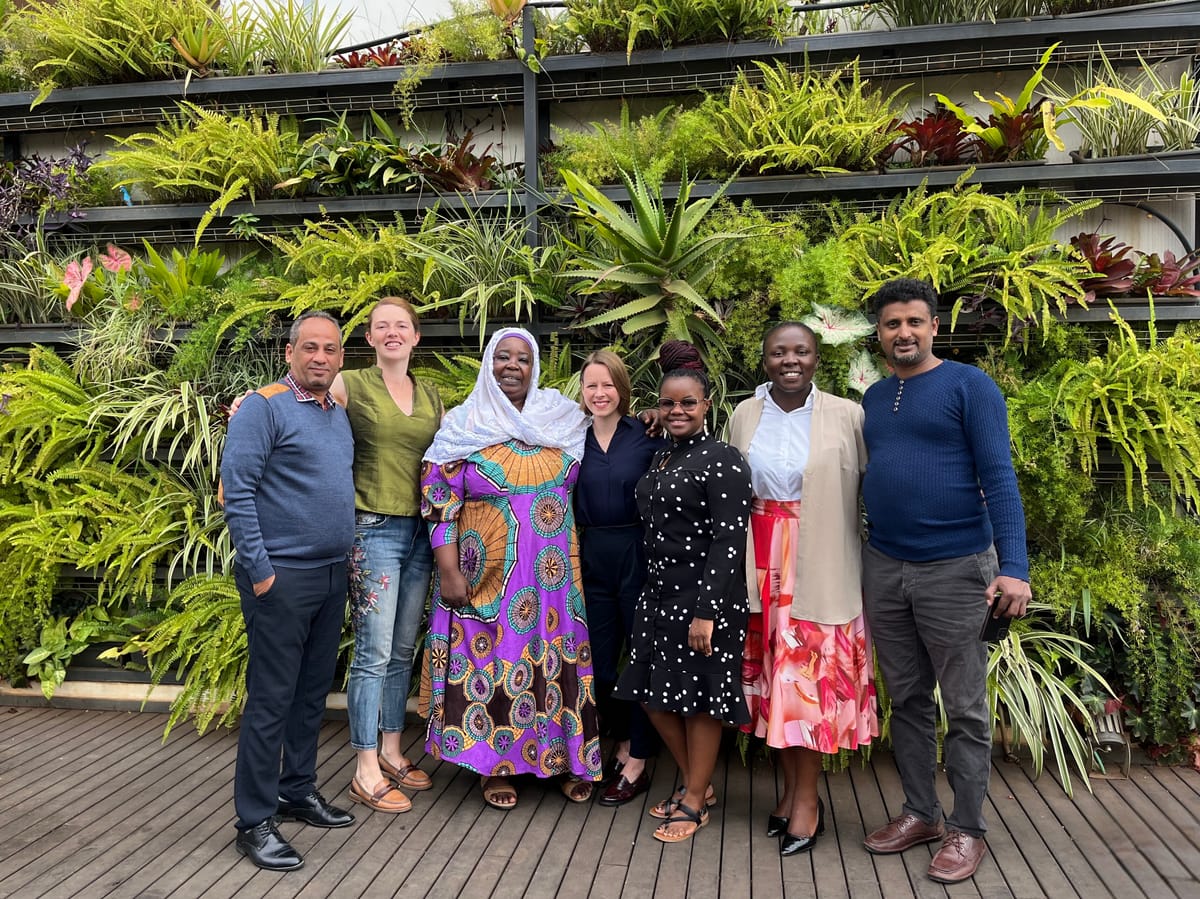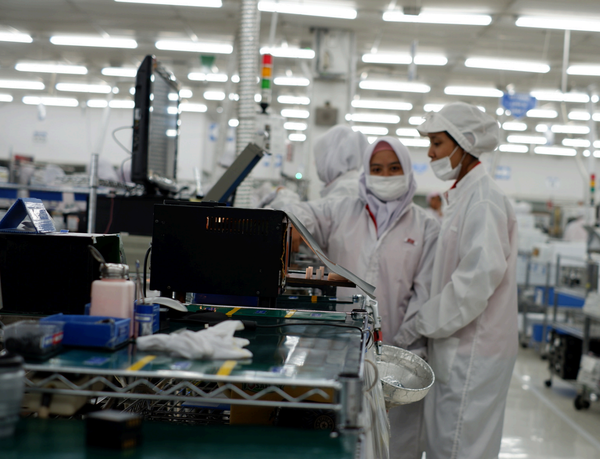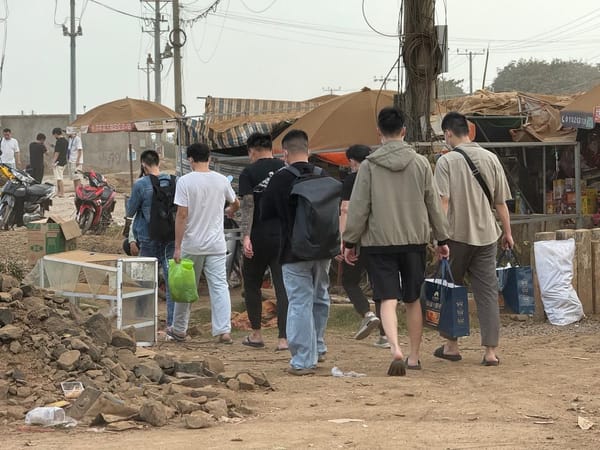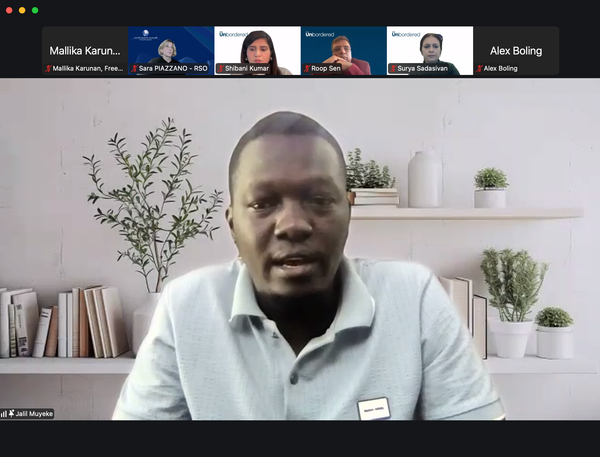EHAAT members gather to discuss the network’s long-term sustainability strategies
CSOs in the East and Horn of Africa hold a workshop on securing resources for strategic priorities, UNODC’s new report highlights a 25 per cent increase in detected trafficking victims globally, and supply chain issues come under the spotlight in the UK.

Civil society organizations (CSOs) from the East and Horn of Africa Anti-Trafficking (EHAAT) Network came together earlier this month for a Resource Mobilization Strategy Workshop, aiming to ensure the organizational sustainability of the network and expand its reach and effectiveness. Facilitated by Freedom Collaborative, the forum took place in Kampala, Uganda, with support from the Better Migration Management (BMM) Programme, funded by the European Union and Germany.
The primary goal of the three-day workshop was to develop a comprehensive strategy that will enable EHAAT to secure the resources necessary to meet its core priorities. Key objectives included translating strategic goals into actionable funding needs, identifying and framing impactful success stories and activities, and drafting a six-month action plan for resource mobilization. The workshop sessions were highly participatory with CSO representatives contributing insights and examples, ensuring collective ownership of the strategy and a shared vision for EHAAT’s future.
Day one focused on reviewing EHAAT’s strategic priorities as outlined during its regional forum earlier this year, and translating them into actionable strategies and activities. Participants identified essential and aspirational goals, providing clarity on the financial and organizational support required to achieve them. The second day was dedicated to identifying successful initiatives and impact stories that could be scaled up across the network, demonstrating the concrete impact and value that EHAAT brings to its members and to broader anti-trafficking efforts across the region.
For instance, previous discussions among network members led to the development of impactful region-specific recommendations for the 2024 Africa Regional Review of the Global Compact for Safe, Orderly and Regular Migration, expanding and enhancing the response by elevating civil society’s role in shaping migration policies, and demonstrating strategic influence on international policy development and agenda-setting. Meanwhile, a series of training events on survivor inclusion delivered in recent months has significantly enhanced the capacity of EHAAT members to engage and support survivors of trafficking and exploitation with sensitivity and professionalism, ensuring organizations can implement long-term sustainable practices that center survivor perspectives.
Other success stories include EHAAT’s facilitation of regular CSO calls, which provide cost-efficient, needs-based opportunities for professional development and peer learning; the network’s leadership on cross-regional coordination to address emerging issues in anti-trafficking, such as trafficking for forced criminality; and its regional mapping exercises, which showcase its expertise in data collection and analysis to inform regional strategies.
On the final day, participants concentrated on developing a concrete six-month action plan which detailed specific activities, responsibilities, and timelines, ensuring accountability and progress tracking. The plan outlines milestones for engaging stakeholders, launching fundraising campaigns, and evaluating success, and follow-up meetings will be held to gather feedback, review progress, and refine the strategy as needed.
EHAAT is a regional network of CSOs dedicated to protecting survivors of trafficking and vulnerable migrants, and combating human trafficking, forced labour, and exploitation across the East and Horn of Africa. Its members operate across multiple countries including Djibouti, Ethiopia, Kenya, Somalia, South Sudan, Sudan and Uganda, and it serves as a platform for grassroots organizations, advocacy groups, and service providers to collaborate, share knowledge, and coordinate their efforts. Now, by equipping itself with a robust resource mobilization strategy, the EHAAT network is poised to amplify its impact, ensuring that trafficking survivors receive the support they need and that the effectiveness of efforts to combat unsafe migration continues to improve and expand.
Here’s a round-up of other noteworthy news and initiatives:
UNODC released its 2024 Global Report on Trafficking in Persons last week, highlighting a 25 per cent increase in detected trafficking victims globally since pre-pandemic levels, with a concerning 31 per cent rise in child victims. The report underscores that poverty, conflict, and climate crises have exacerbated vulnerabilities, fueling surges in forced labour, sexual exploitation, and forced criminality, particularly impacting women and children worldwide.
Also last week, the International Organization for Migration (IOM) released the Thailand Migration Report 2024, detailing Thailand’s complex migration dynamics, particularly the influx of migrant workers from neighboring countries such as Cambodia, Laos, and Myanmar. The report outlines challenges faced by migrants, including exploitation, structural discrimination, and barriers to social protection, while acknowledging the country’s recent policy reforms aimed at improving protections and addressing gaps in migration governance.
The UK Financial Conduct Authority (FCA) is delaying Shein’s London IPO due to concerns over supply chain oversight and a legal challenge from Stop Uyghur Genocide, which alleges the use of forced labour in China’s Xinjiang region. The delay comes amid government pressure to boost market listings, while Shein denies the claims and highlights governance improvements.
The UK Court of Appeal has ruled that allegations of forced labour and unsafe working conditions at Malaysian factories making products for Dyson can be heard in English courts. The decision, overturning a High Court ruling, allows 23 migrant workers to pursue claims against Dyson, citing concerns over access to justice in Malaysia and Dyson’s alleged central role in the policies enabling these abuses.
A new report by Human Rights Watch highlights severe labour abuses and sexual exploitation at Colombian webcam studios producing content for global platforms. Models report unhygienic conditions, wage theft, coercion into non-consensual sex acts, and lack of control over their accounts, with the organization urging US and EU-based platforms to adopt stronger measures to prevent exploitation and ensure workers’ rights.
As the Freedom Collaborative team takes a break for the holidays, we want to extend our heartfelt gratitude for your continued support and engagement. Wishing you a peaceful holiday season and a bright, hopeful start to the new year! Our next newsletter edition will be out on 14 January – we look forward to reconnecting with you then!




